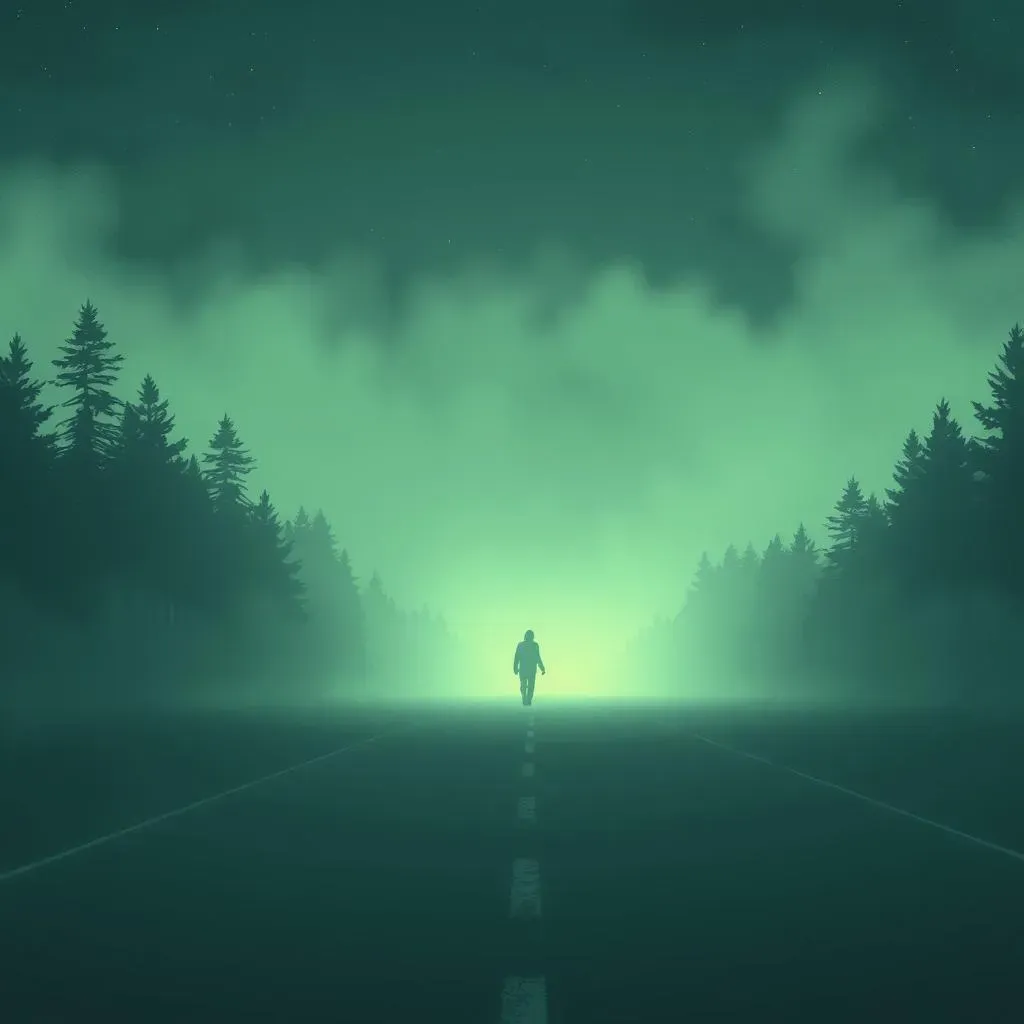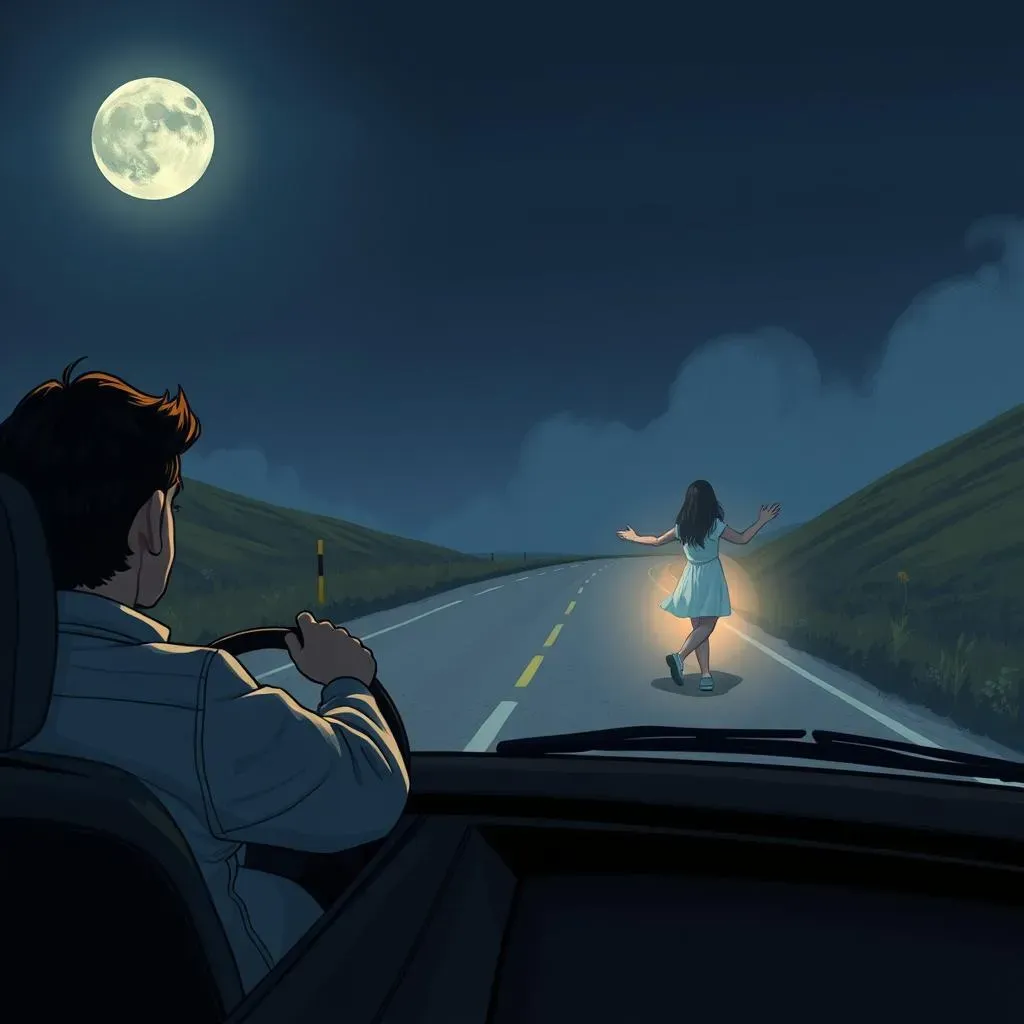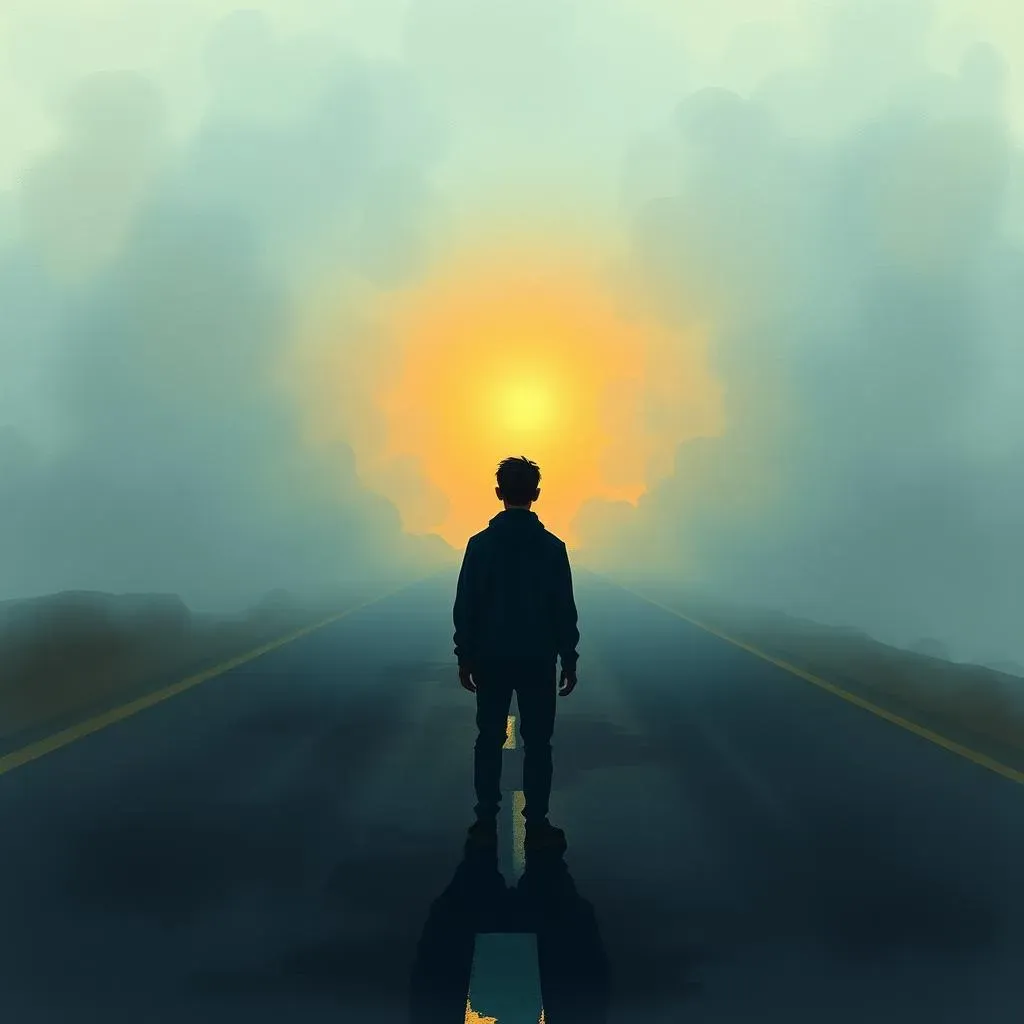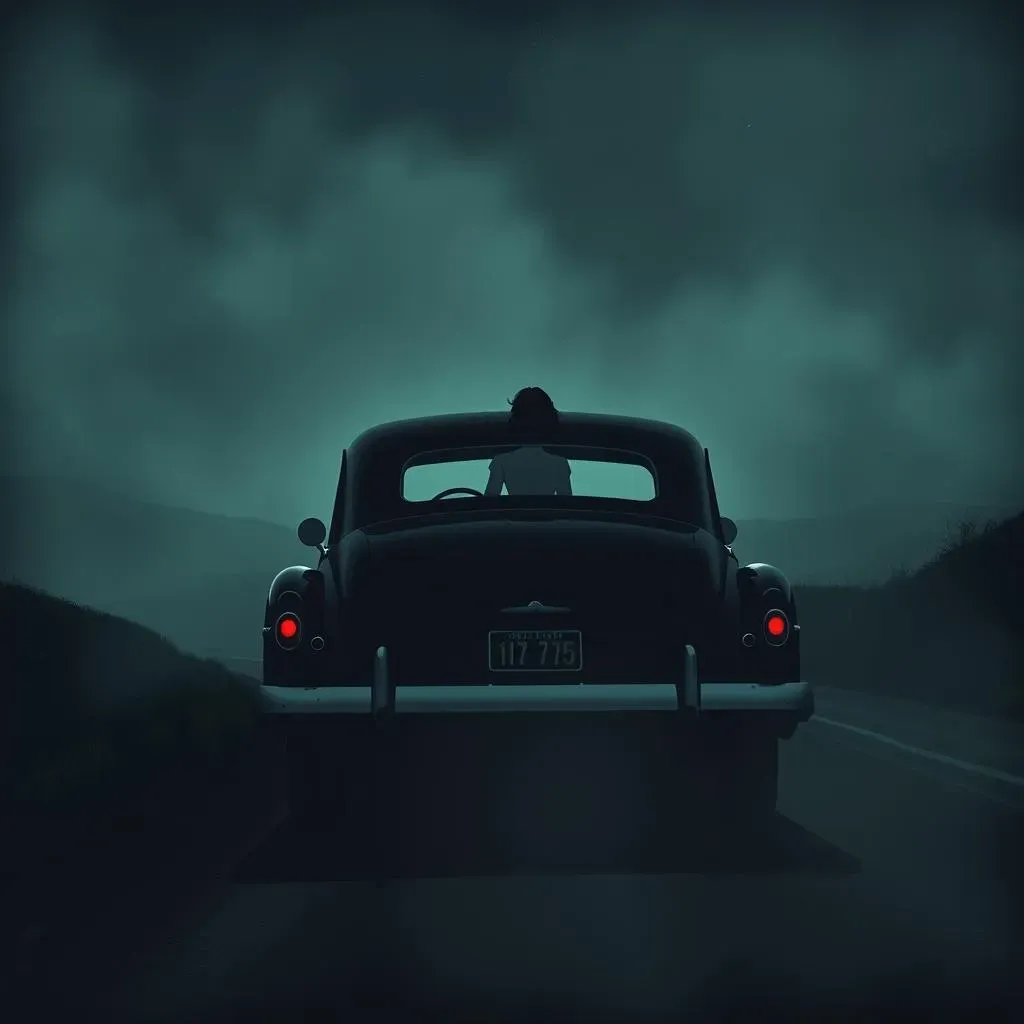Table of Contents
Have you ever heard a story so spooky, so strange, that it just sticks with you? That's the power of urban legends, and few are as iconic as "the vanishing hitchhiker." These tales, passed down through generations, aren't just ghost stories; they're glimpses into our collective fears and fascinations. This article will take you on a journey into the heart of this classic American urban legend, exploring its origins, common threads, and the deeper meanings it holds. We'll unpack why these stories persist and what they reveal about our society. If you're curious about the chilling narratives that have been whispered around campfires and retold in hushed tones, then you've come to the right place. Prepare to explore the fascinating world of "the vanishing hitchhiker american urban legends and their meanings pdf," and discover what makes them so compelling.
The Origins of the Vanishing Hitchhiker and Other Urban Legends
The Origins of the Vanishing Hitchhiker and Other Urban Legends
The Roots of the Roadside Ghost
So, you're curious about where the vanishing hitchhiker story comes from? It's not like some genius just invented it overnight! These tales are like ancient recipes, passed down and tweaked over time. The core idea of a ghostly figure appearing and then disappearing is super old. Think about it – people have been telling stories around campfires for ages, and the idea of a spirit traveling alongside us is a pretty universal theme. It's a way to make sense of the unknown, the spooky, and the things that go bump in the night. These stories, they often tap into our deepest fears, like being alone on a dark road or encountering something that doesn't make sense.
What's cool is how it changes! The specific details – like the hitchhiker's clothing or the type of car they're in – they shift with each retelling, reflecting the era and the local setting. It’s like a game of telephone, where the basic message stays the same, but the details get a little bit twisted. That's what makes urban legends so fascinating, right? They're not static; they're living stories that evolve with us, and this one about the hitchhiker, it really shows how a story can adapt and stick around for so long.
Legend | Common Elements | Possible Origins |
|---|---|---|
Vanishing Hitchhiker | Ghostly figure, car ride, sudden disappearance | Fear of strangers, travel anxieties, folklore |
The Hook | Couple in car, hook-handed killer, suspense | Safety concerns, crime stories, cautionary tales |
Alligator in the Sewers | Exotic pet, urban setting, unlikely animal | Rumors, exaggerated stories, exotic pet trade |
Not Just Ghosts, But Guides
But it's not all about the spooks! These urban legends, like the vanishing hitchhiker, aren't just about scaring us. They can also act as a kind of strange guide. They show us what a community is afraid of, what worries them, and what they value. Is it dangerous strangers? Maybe. Is it the fear of being isolated? Could be. These stories become a reflection of our societies, highlighting our anxieties and our morals. They serve as warnings – sometimes, literally, like 'don't pick up strangers' – but also, in a more subtle way, they teach us about the boundaries we draw around what's safe and what's not.
Think about it like this: if you hear a story about a hitchhiker who disappears after warning someone about an upcoming danger, it's not just a creepy tale, but also a reminder to pay attention, to be cautious, and to maybe trust your gut. It's like a weird kind of public service announcement, wrapped up in a spooky package. So, when we talk about the origins of these stories, we're not just talking about where they came from, but also what they're trying to tell us. It's pretty wild when you really start to think about it, right?
Common Themes and Variations in Vanishing Hitchhiker Stories
Common Themes and Variations in Vanishing Hitchhiker Stories
The Classic Setup
Okay, so you've got the basic idea of the vanishing hitchhiker. But what makes these stories so sticky? It's often the similar pattern they follow. Picture this: a lone driver, usually at night, on a quiet road. They see someone thumbing for a ride, usually a young woman or an old man. They pick them up, have a short chat, and then, *poof*, the passenger disappears into thin air! It's like a magician's trick, but way creepier. The driver's left wondering if they imagined it all, or if they just had a supernatural encounter. That's the core of the tale, and it’s pretty consistent across different versions.
The really interesting thing is how these stories play with the details. Sometimes the hitchhiker is trying to get home, other times they're warning the driver of danger ahead. You'll see variations in what the hitchhiker is wearing, sometimes it's a prom dress from decades ago, other times it's just plain old clothes. Or it could be a specific item they have, like a coat they leave behind, that’s the only proof of their existence. It's these small changes that make each version unique, even though the general structure is the same. It's like a remix of the same song, with slightly different beats and lyrics.
Variation | Description | Example |
|---|---|---|
The Warning Hitchhiker | Hitchhiker warns of danger ahead before vanishing. | A woman warns a driver about a bridge collapse, then disappears. |
The Returning Spirit | Hitchhiker is a ghost trying to return home or finish unfinished business. | A young man tries to get back to his family after a car accident. |
The Item Left Behind | Hitchhiker leaves an object behind, like a coat or a purse. | A driver finds a scarf in their car after the hitchhiker vanishes. |
Why These Patterns Stick
Now, why do these common themes and variations exist? Well, for one, it’s all about making the story relatable. Using common settings, like a lonely road, or familiar situations, like picking up a hitchhiker, makes the story feel more real. It’s easier to imagine yourself in the driver's seat, which makes the story all the more frightening. The details, even though they vary, also help to ground the story in a specific time and place. For instance, a story about a hitchhiker in a flapper dress is going to feel different from one about a hitchhiker in a modern hoodie, right?
Also, these variations allow the story to adapt to different cultural contexts. A story that works in one part of the country might get a little tweak when it's told in another. But the core elements – the driver, the hitchhiker, the vanishing act – they tend to stay the same. It’s like the story is a flexible framework, and each teller can add their own personal touches. That’s why you might hear a similar story from your grandma, and then again from someone you met on the internet – it's the same legend, just with a slightly different spin.
Analyzing the Meaning Behind the Vanishing Hitchhiker American Urban Legends
Analyzing the Meaning Behind the Vanishing Hitchhiker American Urban Legends
Fear of the Unknown and the Road
Alright, so we've talked about the setup and the variations. But what's the deal, you know? Why do these stories stick around? I think a big part of it is the fear of the unknown. Think about it – driving alone at night, you're in your own little bubble, and everything outside is dark and mysterious. That's a scary space for a lot of people. And when you add in the idea of a stranger, a ghost, or something that doesn't quite fit, it just cranks up the creep factor. The road itself is a symbol of the unknown, a journey into the unpredictable, and these legends tap into that feeling of vulnerability when you're out there by yourself.
These stories, they’re like a way for us to process those feelings. They take something scary, like being alone on a dark road, and give it a narrative, a structure. It's like we're telling ourselves, 'Okay, this is a scary thing, but here's a story about it, and maybe if I hear this story enough, I’ll be a little bit less scared.' It's a weird way of coping, but it works, right? It's not about believing in the literal ghost, but about acknowledging the very real anxiety that comes from being in that kind of situation. So, the vanishing hitchhiker isn't just a ghost story, it's a reflection of how we feel about being out there on our own.
Meaning | Explanation | Example |
|---|---|---|
Fear of the Unknown | The unknown is scary, especially at night. | The dark road and the stranger create a sense of unease. |
Vulnerability | Being alone makes you feel exposed. | A lone driver is more susceptible to potential threats. |
Loss of Control | Situations where you can't predict what will happen. | The sudden disappearance of the hitchhiker leaves the driver bewildered. |
Social Anxieties and Moral Lessons
But it's not all doom and gloom. These stories also reflect some pretty deep social anxieties. The vanishing hitchhiker, in many ways, is a story about strangers and the dangers they might pose. It’s like, 'Don't trust people you don't know, especially when you're alone.' That's a lesson that society has been trying to teach us for ages, and these stories just reinforce it in a really memorable way. These stories are also about the boundaries we set – who we let into our lives, or our cars, and who we keep out. They’re about the risks we take when we go outside those boundaries.
Beyond the fear, there are often moral lessons woven into the tale. Sometimes the hitchhiker is a warning, telling us to be careful, or to pay attention to our surroundings. Other times, it's a reminder of the consequences of our choices. It's like a subtle way of society saying, 'Hey, here's how you should behave, and here's what happens if you don't.' It's not always a direct message, but it's there, lurking beneath the surface. So, when we’re looking at the meaning behind these legends, we’re not just thinking about ghosts, but also about what they tell us about ourselves and the rules we live by.
The Power of Storytelling and Shared Experiences
Finally, and maybe this is the coolest part, these stories show the power of storytelling itself. They’re not just random tales; they are shared experiences that connect us. The fact that you can hear a similar story in different places, from different people, shows how these narratives become part of our shared cultural landscape. And that's pretty amazing, right? These stories are like little threads that connect us to others, even strangers. It’s like we're all part of this big, ongoing conversation, and the vanishing hitchhiker is just one of the topics we keep coming back to.
These urban legends, they're not just about the scary stuff; they're about how we communicate, how we make sense of the world, and how we connect with each other. The vanishing hitchhiker, specifically, is a great example of how a simple story can take on so many different meanings and resonate with so many people. It’s a reminder that even the spookiest stories can teach us something about ourselves and the world around us. And honestly, that’s why I find these stories so fascinating and why I think they're worth talking about.
The Vanishing Hitchhiker and Its Place in American Folklore
The Vanishing Hitchhiker and Its Place in American Folklore
A Modern Myth in the Making
So, where does the vanishing hitchhiker fit into the bigger picture of American folklore? It's not like it's a story about Paul Bunyan or Johnny Appleseed, right? Well, it's a more recent addition, a modern myth if you will. These stories, they aren't carved into ancient stones or written in old books. Instead, they’re spread through word-of-mouth, through newspapers, and now, through the internet. That’s what makes them so different from those older, more established tales. They’re flexible, adaptable, and very much alive. The vanishing hitchhiker is a prime example of how folklore continues to evolve and change with our society.
It's like, folklore isn't just about the past, it's also about the present. It’s about how we make sense of the world right now, and these urban legends, they play a big part in that. The fact that you can find variations of the vanishing hitchhiker story all across the country, and even in other parts of the world, just shows how powerful and universal these themes are. It's like we’re all sharing this collective story, adding our own little bits and pieces, and that makes it a really important part of our shared cultural identity. It’s a living, breathing thing that continues to shape how we see the world.
Folklore Type | Characteristics | Examples |
|---|---|---|
Traditional Folklore | Passed down through generations, often with roots in ancient times. | Fairy tales, myths, legends like Paul Bunyan or Pecos Bill. |
Urban Legends | Modern stories, often with a sense of realism, spread through modern communication. | The vanishing hitchhiker, alligators in the sewers, the hook. |
Contemporary Legends | Legends that evolve with current events and technologies. | Creepypastas, internet folklore. |
More Than Just a Spooky Story
But why does it matter? Why should we care about a spooky story about a ghost hitchhiker? Well, because these stories, they’re not just entertainment. They’re a reflection of who we are. They tell us about our fears, our values, and the things that we find fascinating. The vanishing hitchhiker, it’s like a mirror that reflects back our anxieties about travel, about strangers, and about the unknown. It’s a way to explore these things in a safe and controlled environment, through the power of storytelling. And that's a pretty big deal, right?
So, when we talk about the vanishing hitchhiker's place in American folklore, we're really talking about its role in our society. It's a story that helps us understand ourselves, our communities, and the world around us. It’s a reminder that folklore isn't just about old stories, it’s also about the stories we tell today, and the ways we use them to make sense of our lives. It shows us that even the strangest stories can have a lot to say about who we are as people. It's a living, breathing thing that continues to shape how we see the world.
